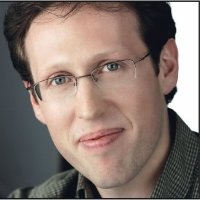ONE MAJOR ADVANTAGE OVER FULL-TIME: YOU CAN TAKE THE LEARNING BACK TO WORK AND APPLY IT NOW
But if part-timers lose out on socializing, they win in real-life workplace actualization. “You can take the learning you experience in the classroom back to work and start applying it immediately,” Ivey says. And vice versa. “I can bring questions from work into class,” Xi says.
And of course, part-timers don’t have to shoulder the opportunity cost of losing two years of employment income.
That holds true for most of Stern’s part-time business students. Officially named the Kenneth G. Langone Part-Time Evening MBA program, to honor the Home Depot co-founder who endowed it with $6.5 million in 1998, the part-time program has actually been around since Stern’s founding in 1916. These days, Langone, as it’s called for short, has about 2,000 enrollees in any given year, whereas the full-time program has in the neighborhood 800.
Distinguished Langone alumni include 1994 grad Andrew Stenzler, co-founder and CEO of Kidville Inc., and 1996 grad Susan Jurevics, a senior vice president at Sony.
STERN’S PART-TIME PROGRAM IS THE LARGEST IN THE U.S., IF NOT THE WORLD
Of the MBA programs U.S. News and World Report ranks, Stern has the largest part-time program, exceeding Booth (1,473 part-timers) and Kellogg (813)–and its location in New York City makes its part-time students among the best in the world.
Langone students take classes weeknights or Saturdays in Manhattan. They can earn 1.5 to 3 credits by traveling overseas for one of the school’s intensive short-term immersion courses called “Doing Business in.”
Jessica Chan recently took two weeks off from her full-time job to participate in a DBi course in Hong Kong. It consisted of classes, such as “Deal Making in China,” at the Hong Kong University of Science & Technology, corporate visits, and a Chinese Kung Fu lesson, among many other activities.
ON AVERAGE, PART-TIMERS AT STERN COMPLETE THE DEGREE IN THREE YEARS
“I had the opportunity to meet with the head of my firm in Hong Kong, so it seemed to make the world a lot smaller,” says Chan, a project manager at the Manhattan real estate services company Jones Lang LaSalle. “The class highlighted cultural and political aspects of how an expatriate like me could run a multinational.”
Students can also elect to take 75 percent of the courses via NYU Stern Westchester at SUNY Purchase in Purchase, New York.
On average, part-timers complete the MBA in three years, although some pack it into two years or stretch it out to six. Using the current 2013 per-credit rate, Langone MBA tuition adds up to $104,280 (plus fees), although the amount of tuition may change each year, so the total is dependent on how many years students take to complete their degrees. The program consists of 60 credits, priced at $1,738 per credit plus registration fees. Students generally tackle about 20 credits a year. (Using the current 2013 rates, full-time MBA tuition and fees for two years add up to $113,806, although annual tuition and fees may change in 2014.)
Chan plans to finish her MBA in 2.5 years. Like Xi, she finds the work-school-home travel triangle highly doable, and feels participation in Stern’s MBA clubs is vital. She belongs to the Part-Time Leadership Forum.
‘SINCE LANGONE, MY CONTACTS HAVE INCREASED FIVE-FOLD’
“At work, I’m working with mostly developers and financiers,” says Chan, who travels to Stern from her job in the Grand Central Station area, and then back to her home in Midtown after class. “But since Langone, my contacts have increased five-fold. They are from different fields and [there are] also people who work in the same field for competing firms.”
For 2011 MBA Dan Kolodny, his then-job with the NYU Division of Libraries, housed right next to the Stern building, mitigated the Langone logistics — but he still had to forfeit part of the MBA experience. Married with a little son, Kolodny wanted to head home to Astoria, Queens, an hour from campus, as soon as possible.
“The MBA program means you meet with people to do homework, so that was another chunk of two hours, so I really didn’t have time to take away from my family and do a Happy Hour,” recalls Kolodny, now a management consultant with Accenture in the San Francisco area. “The Langones were kind of split. I gravitated toward the married group with children. And then there was the group that was younger, maybe three years after undergrad, and they were far more involved with clubs related to Stern after school and on weekends.”






Questions about this article? Email us or leave a comment below.